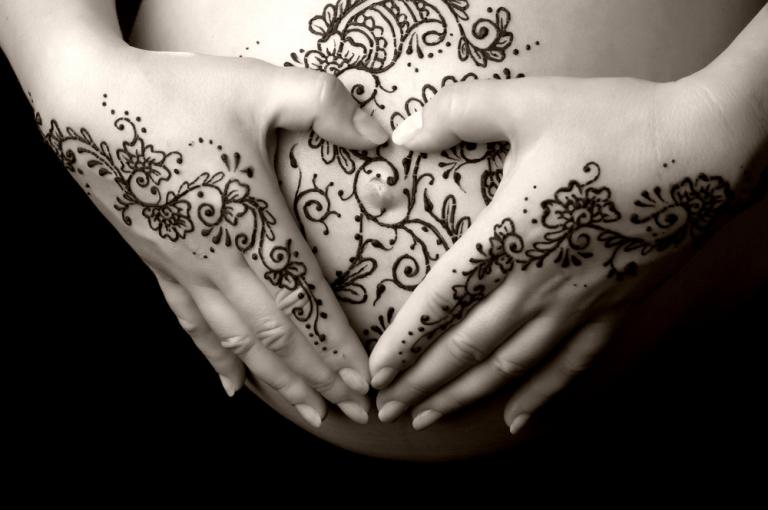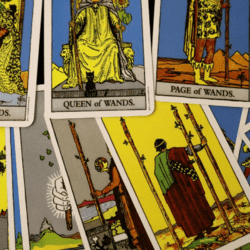I keep meaning to write something about Anthesteria or Thargelia or something relevant to this time of year, but I’ve been distracted. A few weeks ago, I found out that I’m pregnant and I’ve been occupied with that pretty much exclusively since. The housework is slipping big time, mostly due to the utter exhaustion that comes with the first trimester. It’s like pregnancy narcolepsy; if I sit still long enough, I fall asleep. I’m not eating like I usually do because of the all-day-long sickness, and I’m still trying to participate in my graduate fellowship, write my thesis, and do all the mom/wife/priestess things. I’ve scaled back on what I’m doing in community and otherwise so that I can spend that energy building a human from scratch and I’m working on discovering what it means to be a vessel of life in a Hellenic Polytheist context.

Last time I did this was ten years ago and I was, at the time, slowly moving from a Wiccan model of worship toward something else. I didn’t yet know what “something else” was and clung to the Wiccan model for a good long time until the “something else” became a little clearer. I gave my daughter a Greek name and asked Iris the Messenger and Zeus the Father to protect her at her blessing, so I was already moving in the direction of Hellenic Polytheism. Now that I’m here, I’m a little bit lost at sea as to how to be an actively reproducing member of the faith. It’s not as clearly defined as it is in Wicca where the reproductive power of women is revered and can be, depending on the Wiccan, central to worship and belief. Some of that sticks with me in a Campbellian “Holy crap, I’m creating life!” kind of way, but there’s not a whole lot of focus on the miracle and mystery of giving birth in what I’ve seen of the culture surrounding modern Hellenism. I suspect that much of this is due to the fact that many of us are converts and there aren’t a great number of parents among us. Children are often included in descriptions of Classical era rituals, but modern Hellenic parenting is something that’s more or less done by the seat of the pants. In other words, I’m making this up as I go. Of course, that’s how most parents do it, but Hellenism is entirely without any hand-dandy guides, manuals, or activity books written by other Hellenic parents. It’s a niche market, I guess.
Returning back to my expanding uterus, there is quite a bit to be found in the primary and secondary literature about pregnancy and childbirth in ancient Greece. The Hippocratic corpus and Aristotle’s History of Animals both go into fine detail about the early medical understanding of pregnancy and childbirth. These read like the first version of What to Expect When You’re Expecting (equally terrifying and informative), but much of what was written in these texts still holds true. Exercise and eating right were just as important for women in the mid-300’s BCE as now and though some of the theories on uterine function seem laughable, these early works are the basis for modern prenatal care and for that, I am grateful.
From a more spiritual angle, pregnant women were considered more vulnerable to miasma, but not a source of pollution themselves. That said, women forbidden to give birth in a temple or on the island of Delos. I’m pretty sure neither is going to be much of a problem for me unless I happen to be in the Nashville Parthenon at the exact wrong time. Even then, there’s a hospital darn near within walking distance from there. In fact, that very hospital is where I gave birth to my daughter! But I digress…
Artemis is well-known as a midwife and she’s the kind of goddess that won’t be found in the cities or towns unless there’s a woman giving birth. She assisted in the birth of her brother, Apollo, shortly after she was herself born and she has a love of little children. There’s Eileithyia, another midwife older than Artemis and possibly older even than Cronos. She’s a spinner and associated with the Moirae, the Fates. Kalligenia is a nurse to Demeter and Persephone whose name means “beautiful birth.” I’ll of course be praying to Apollo and Asklepios as healers, particularly when the time comes to have this baby.
There are other deities to pray to, purifications that can be done, and so on, but I think the best thing to do as I settle into being pregnant is to listen. I’ll listen first to what my body is asking of me. If I need to rest, I’ll rest. If I need to eat, I’ll eat. I’ll listen to my OB, whose medical knowledge is a little more updated than Aristotle’s, and to her nurses and techs. I’ll listen to the women of my community, some of whom have also done this once before, and I’ll continue to listen to the Theoi. I’ll listen to all of these and to my own voice of logic and reason to find the best way forward.
Shortly before I found out I was pregnant, I went for a walk on an unseasonably warm and sunshiney day. I often pray when I’m walking, or else meditate or otherwise open myself up to the divine wooby. I’ve had many conversations with my gods this way and on this particular day, I felt the presence of Apollo who informed me that I would be doing some sort of purification before Thargelia. I puzzled over this, wondering what I needed to do. Then, of course, it became perfectly clear: purification is necessary for a pregnant woman. I’m avoiding toxins, drinking water, eating healthier, and exercising as much as I have the energy to. I’m being healthy for two now.
I have a great deal of respect for the women who endured so much just to have children and for all those who have died in the process. I’m grateful to those early healers who sought to understand the workings of the body and the diseases that afflict us. Upon that ancient foundation of compassion, I add my own very personal gnosis and build upon my experience and that of those around me. The creation of life is a sacrament and a mystery* and even though I don’t feel very holy when I’m too nauseated to eat cheerios, I trust that the Theoi will lead me to where I need to be. I need only to seek arete in each moment, humbly going down this path as it unfolds before me.
Notes:
*Turns out that our Christian neighbors translated the Greek musterion (mystery) into the Latin sacramentum (solemn oath). I think they may have been on to something there.
Thanks to Melissa from Hellenion for pointing me toward some good information about pregnancy and childbirth in Ancient Greece.
There’s also some good information in:
Women in Ancient Greece by Sue Blundell, published in 1995 by Harvard University Press
If you’d like to help out women in need, The March of Dimes and Doctors Without Borders are good places to start. (Doctors Without Borders link goes to a story on maternal death)

















